Leon Rosenblatt
Leon Rosenblatt was a bank director, member of the bank council, member of the FUKR - Fach und Kontrollrat (business and supervision council), born 1892 or 1894 in Stanisławów (Iwano-Frankiwsk, Ukraine), before WWII he was a resident in city of Łódź, deportated to Auschwitz, died there in 1944.
He was a commander of the Jewish police established by Chaim Rumkowski in April 1940. In 1942, the police numbered about 1,100 officers. Hated by many inhabitants of the Łódzkie ghetto, together with Rumkowski, he organized the transport of Jews to extermination camps.
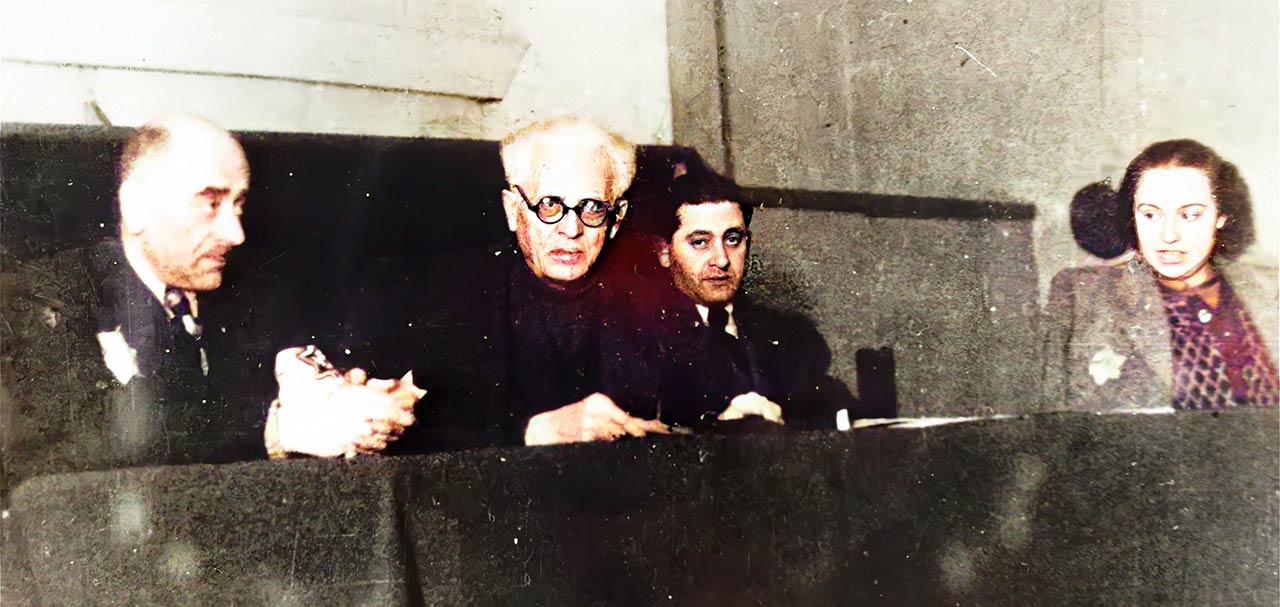
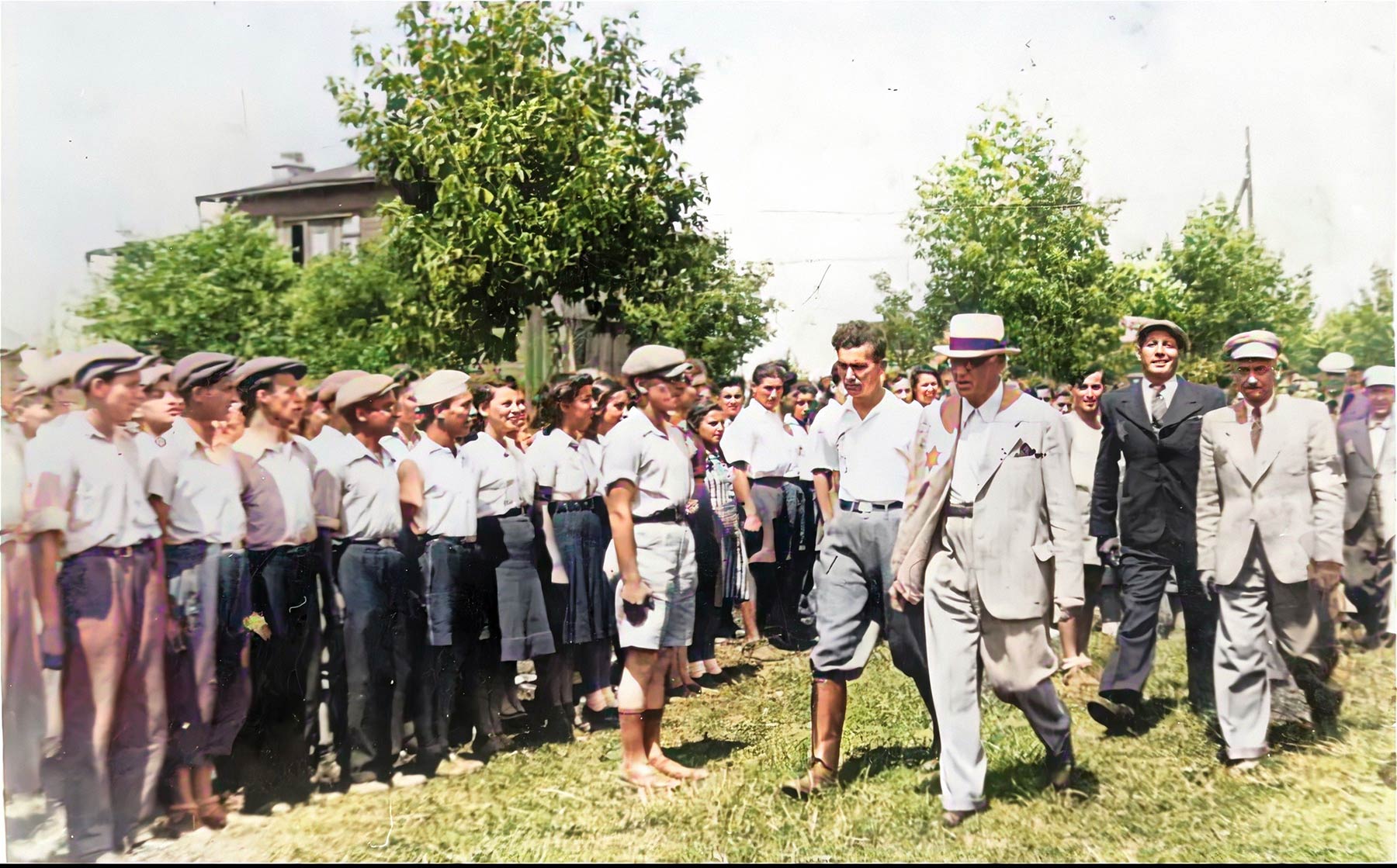
He was a Germanized Polish Jew who along with all the other Jews withour German citizenship, was evicted from the Reich in 1938. In Ghetto Lodz he became Chief of Police, not just of the ordinary police, whose function was merely to maintain law and order, but one of the most horribe group of police, the Sonderableilung, who cooperated with the Germans in the evacuation of the Jews from the ghetto to the camps.
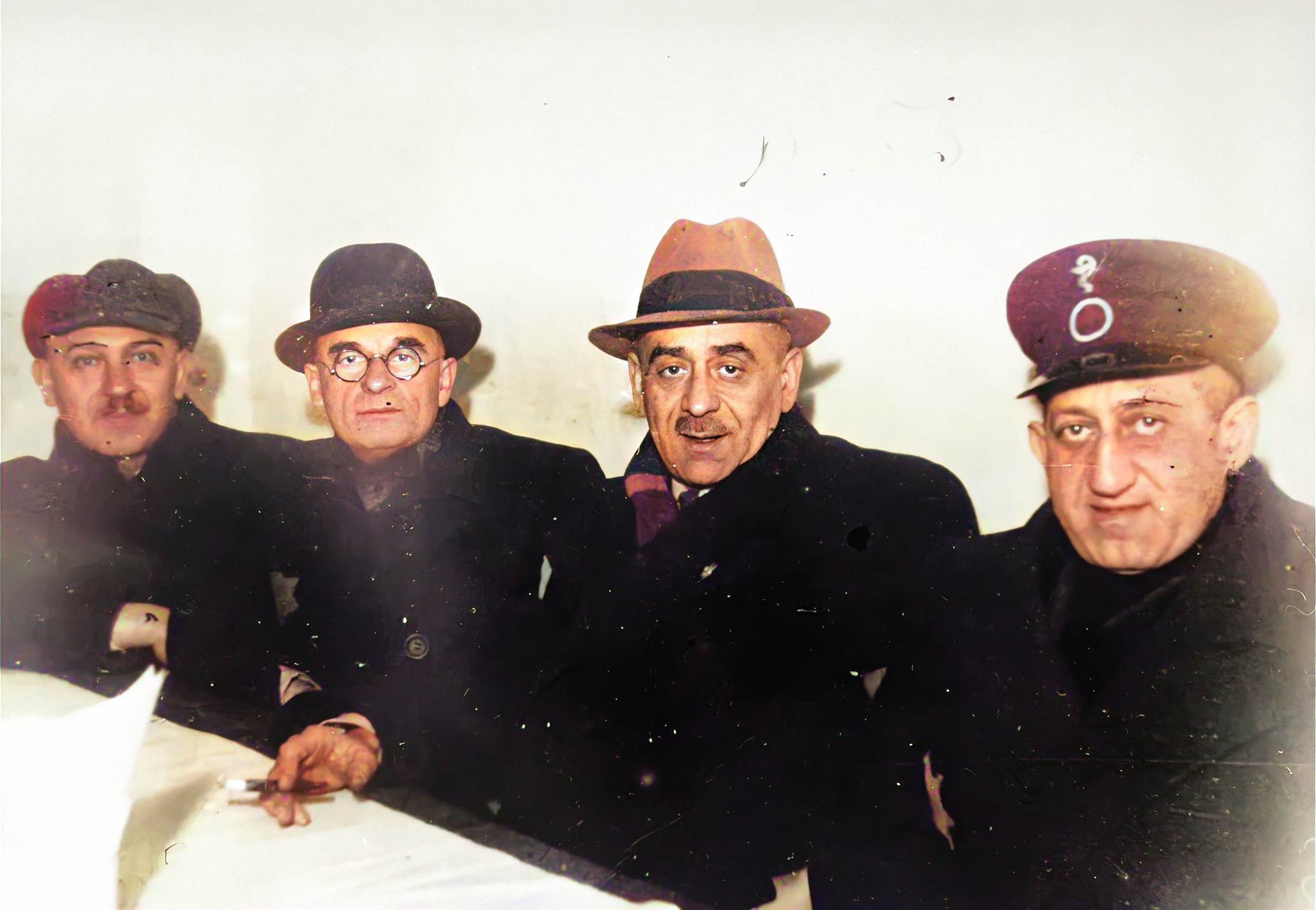
When the German criminal police (Kripo) robbed the Jews of gold, money and valuables, and loaded the loot into a chest in their car, one day in 1943, the trunk was stolen. The Germans immediately went to Rumkowski and Rosenblatt, and stated that if the trunk was not found within 24 hours, they would hang 100 Jews in public view every day. The thief was Mojsze Chusyd, who himself immediately pleaded guilty. He said to Rosenblatt:
I am a thief, but I am also a Jew with a Jewish heart. As a matter of fact, I didn't steal anything, I just took away from these bandits what they had stolen. But human life, especially the life of my compatriots, is more precious to me than the gold of the whole world. You, Rosenblat, are constantly sending thousands of people to their deaths to save your skin. For me, the life of an innocent Jew is more precious than my own. So do with me what you want, but save the innocent.
After the liquidation of the Łódź ghetto, when the Germans no longer needed him to organize transports of Jews, Rosenblatt himself was deported to the death camp in BrzezinkaThe camp in Brzezinka (German: Birkenau) was part of the German Nazi concentration and extermination camps, operating in the years 1940–1945 in Oświęcim (German: Auschwitz or Auschwitz-Birkenau). At first it was a concentration camp, but then it also became a place of mass extermination, where gas chambers and crematoria were placed..
(...) all-powerfull Rosenblatt stood on the platform with the rest of us, waiting to enter the cattle cars, just like the many thousands he had sent before him.
Meanwhile, the aforementioned Chusyd was also sent to the death camp in Brzezinka, where he became a member of Sonderkommando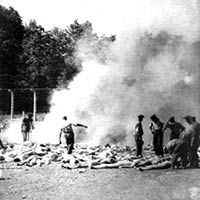 Sonderkommando - units created to perform special tasks, for example police and military units performing extermination tasks in relation to the jewish community, to service gas chambers and crematoria, created on the initiative of the Germans or the jewish administrations themselves in ghettos, which dealt with transporting their brothers to their extermination destinations, in return i.a. for protecting their loved ones and were especially hated by other Jews.. This enabled him to take terrible revenge on Rosenblatt when he finally hit the same spot; earlier, however, he had offered him an honorary suicide using the offered razor. The latter, however, refused. After the torture, Chusyd threw Rosenblat's massacred body into a hole in the ground where the bodies of Jews were burnt, and a moment later he brought and threw the body of Rumkowski, who had been killed earlier.
Sonderkommando - units created to perform special tasks, for example police and military units performing extermination tasks in relation to the jewish community, to service gas chambers and crematoria, created on the initiative of the Germans or the jewish administrations themselves in ghettos, which dealt with transporting their brothers to their extermination destinations, in return i.a. for protecting their loved ones and were especially hated by other Jews.. This enabled him to take terrible revenge on Rosenblatt when he finally hit the same spot; earlier, however, he had offered him an honorary suicide using the offered razor. The latter, however, refused. After the torture, Chusyd threw Rosenblat's massacred body into a hole in the ground where the bodies of Jews were burnt, and a moment later he brought and threw the body of Rumkowski, who had been killed earlier.
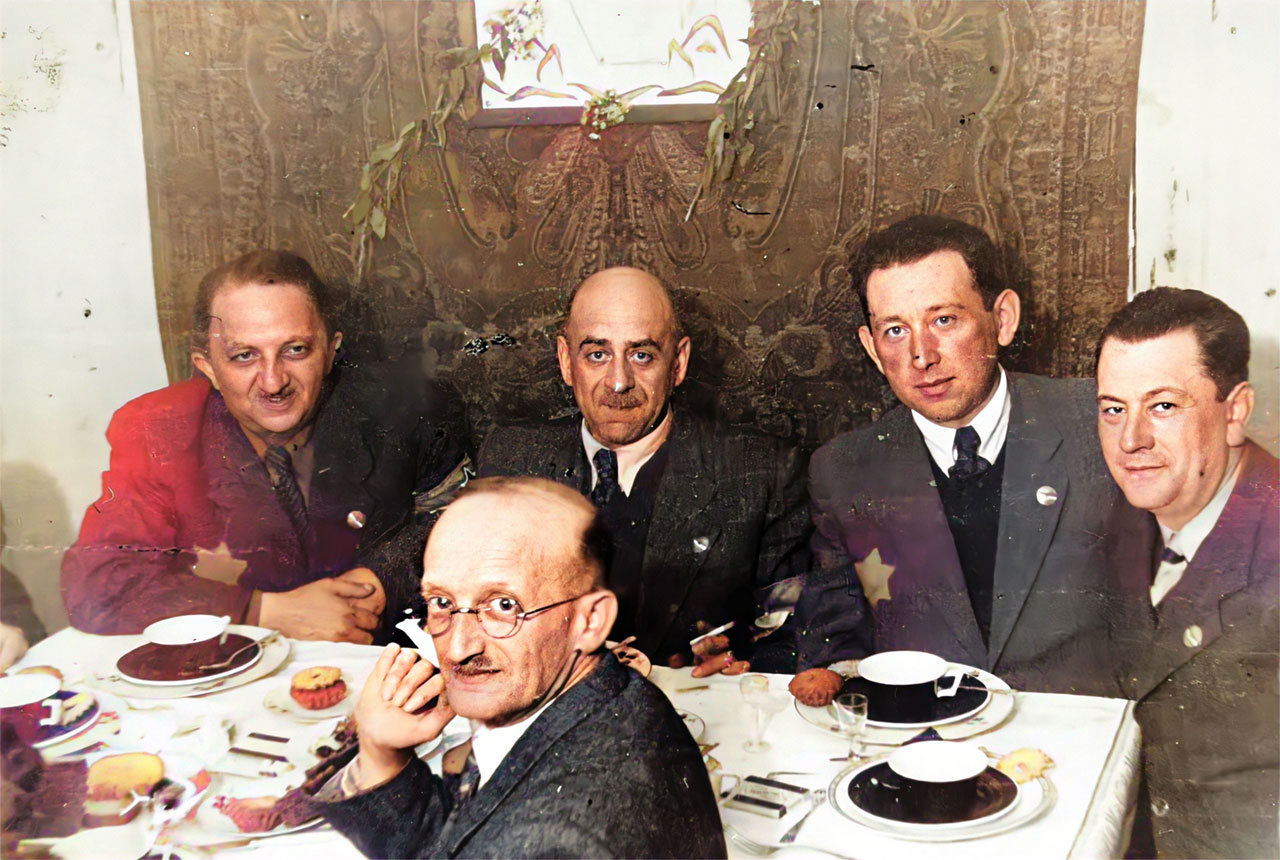
https://collections.ushmm.org/search/catalog/pa1033036


